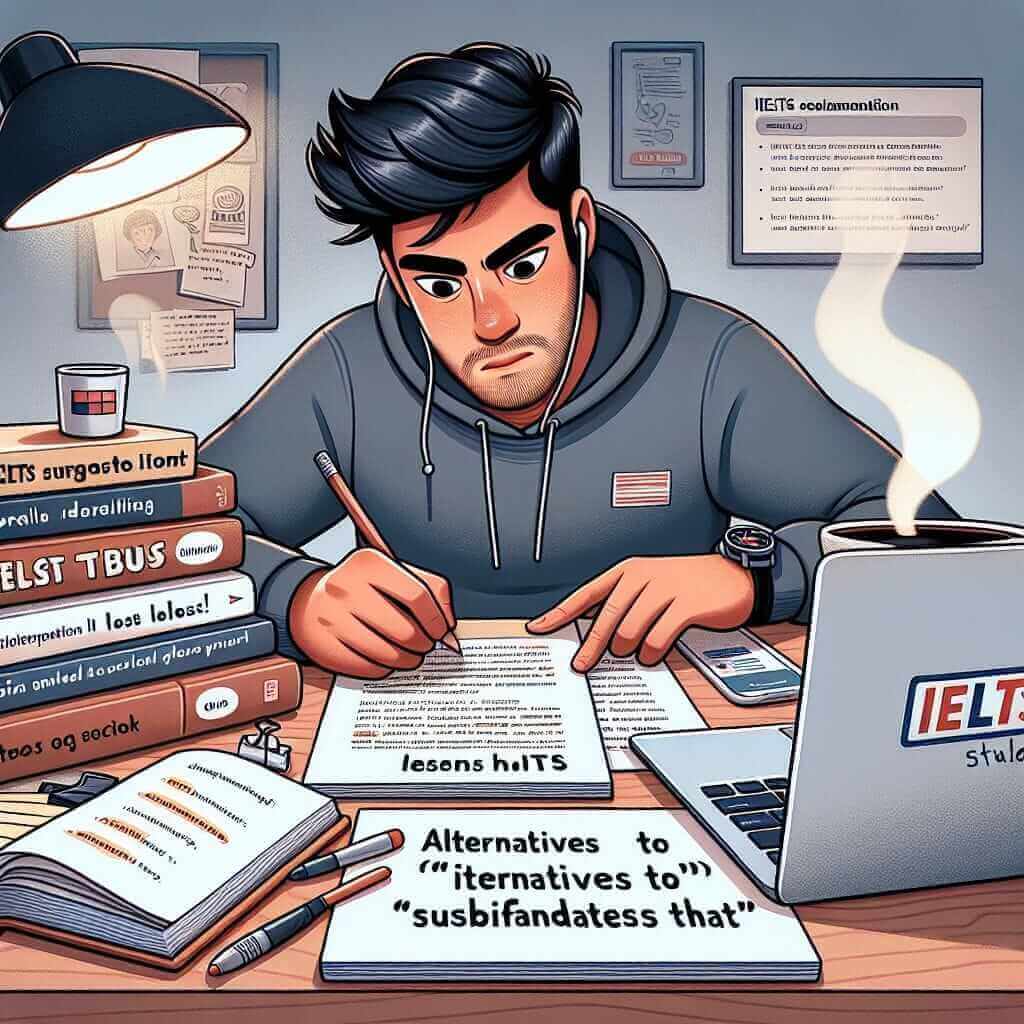The phrase “it substantiates that” might sound impressive, but is it the right choice to elevate your IELTS writing? While it’s not inherently wrong, it’s not a common phrase in natural English, and there are often stronger, more concise alternatives. Let’s explore why and look at some examples:
Example 1 (Speaking – Part 3):
- Question: How has technology impacted the way people learn languages?
- Answer: The internet provides a wealth of resources, like language learning apps and online dictionaries. This substantiates that technology has revolutionized language acquisition.
Example 2 (Writing Task 2):
- Prompt: Some people believe that the best way to reduce crime is to impose stricter punishments. To what extent do you agree or disagree?
- Response: Advocates argue that harsher penalties deter potential offenders. It substantiates that a strong legal system is crucial for maintaining order.
Analysis: In both examples, the phrase “it substantiates that” feels a bit forced. We’ll examine more effective alternatives in the sections below.
Understanding “It Substantiates That” and Its Alternatives
“To substantiate” means to provide evidence or proof to support a claim. However, using “it substantiates that” can sound overly formal and even awkward.
Aiming for Natural Flow: Better Alternatives
1. Direct Verbs:
Instead of “it substantiates that,” directly use verbs that convey the relationship between your evidence and claim.
- Example: Research indicates that early language exposure benefits cognitive development.
2. Transition Words and Phrases:
Use words like “therefore,” “consequently,” “as a result,” or “this suggests” to create a smooth flow of ideas.
- Example: Crime rates have fallen since the implementation of community policing programs. This suggests that proactive approaches can be effective.
3. Illustrative Phrases:
Instead of simply stating that something “substantiates” a point, show the reader how the evidence supports your claim.
- Example: The company’s commitment to sustainability is evident in its use of recycled materials and its investment in renewable energy sources.

IELTS Writing Examples and Analysis
Let’s revisit the previous examples and revise them for clarity and impact:
Example 1 (Speaking – Part 3):
- Revised Answer: The internet provides a wealth of resources, like language learning apps and online dictionaries. This clearly demonstrates how technology has revolutionized language acquisition.
Example 2 (Writing Task 2):
- Revised Response: Advocates argue that harsher penalties deter potential offenders. Indeed, a strong legal system is crucial for maintaining order, as evidenced by the correlation between effective law enforcement and lower crime rates.
Analysis: By replacing “it substantiates that” with more precise language, we create sentences that are more natural, engaging, and impactful.
Common Errors and How to Avoid Them
- Overuse: Using “it substantiates that” repeatedly makes your writing sound repetitive.
- Wordiness: It’s often more concise to use a single, strong verb than the phrase “it substantiates that.”
- Formal Tone: In most IELTS contexts, a slightly less formal tone is preferred.
Conclusion
While “it substantiates that” isn’t grammatically incorrect, it’s not the most effective way to present evidence in your IELTS writing. Strive for clear, concise, and natural-sounding language to express your ideas effectively. By focusing on strong verbs, transition words, and illustrative phrases, you can make your arguments more persuasive and improve your overall score. Remember, the goal is to communicate your ideas fluently and convincingly.